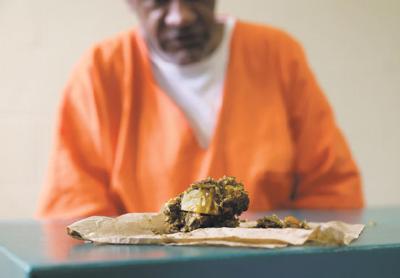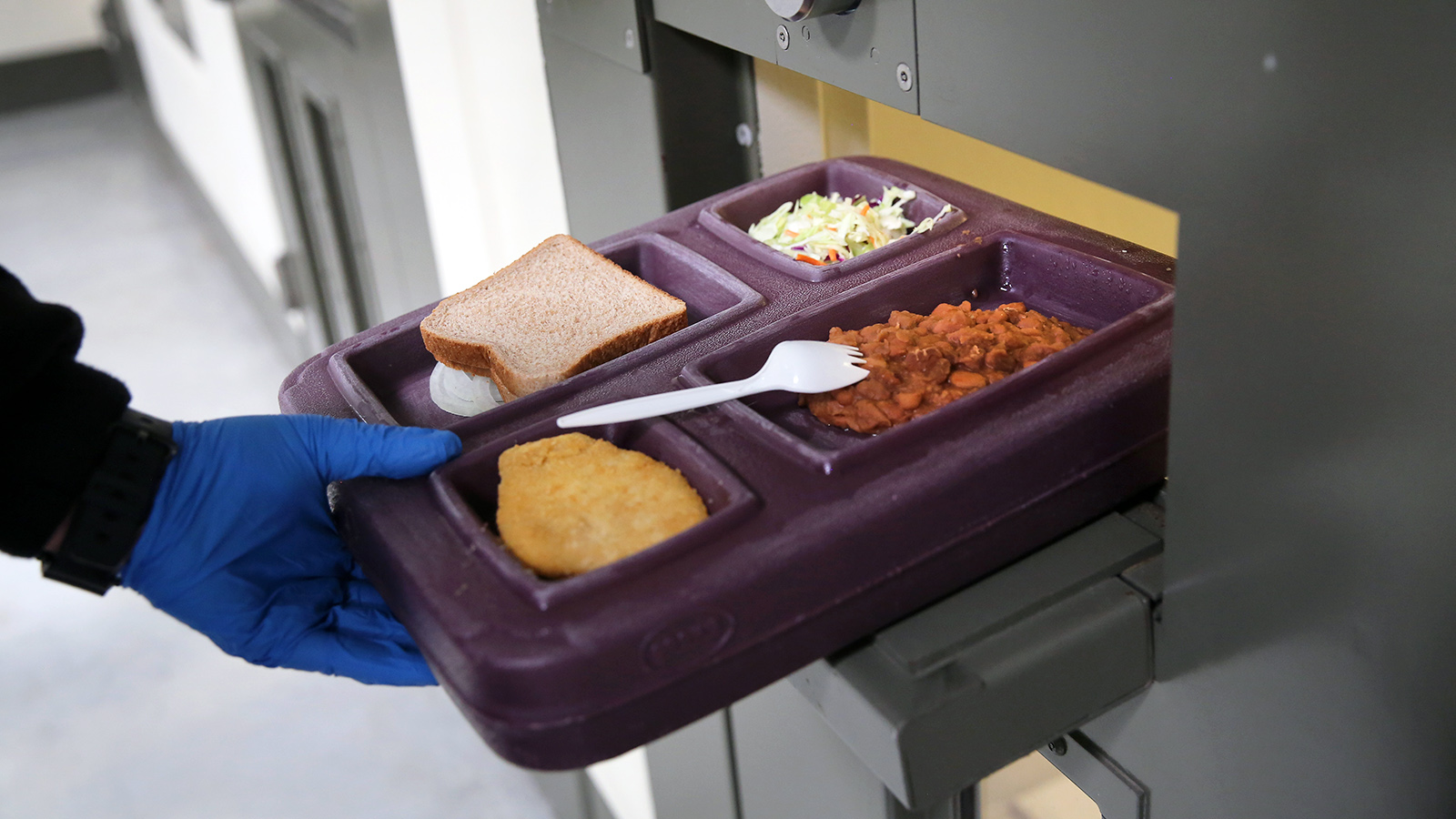It is evident that prison food is a public health problem and only getting worse across the United States. U.S. prions are moving to a more industrialized and private system focused on packing prisons with more people in order to acquire larger sums of money. Once again, the U.S. prison system is displaying a corrupt structure to benefit themselves finically. They simply treat their inmates like objects and fail to recognize them as human beings. Industrialized prisons replace cooking from scratch with processed packaged food that does not meet the standard nutrition requirement. Because of this, prisoners are exposed to various diseases and illnesses because they are not getting the proper nutrition to keep their immune systems strong. This plays in to they psychical and mental health struggles that prison life entails.

According to Health.gov, proper nutrition is a quintessential aspect to maintaining physical and mental health. “Food and nutrition play a crucial role in health promotion and chronic disease prevention.” Prisoners currently live in an environment that degrades and diminishes their bodies and mental health. Without access to nutritious food, people who are incarcerated are disproportionately at risk of developing chronic diseases, such as diabetes and heart disease, or making their existing health conditions worse. When you add this to the malnourished meals they receive it is no surprise that “in prisons, 25% of females and 21% of males reported ever having an infectious disease.” These numbers should not be this high, and many of these infectious diseases can be credited to the food served in these prisons.
The first example shows prisoners from the Georgia’s Gordon County Jail. These claimed they had lost 20 or more pounds in a few months. The food company that provided for this prison, Trinity, had little regard for what prisoners think about the meals they are severed. They charge jails and prisons as little as 75 cents to $2 per meal and save a substantial amount of money because of it. Although they are making high profits the consumer, which in this case is the prisoner, gets the bad end of the stick. According to Susan Sharen, “Studies show that prison diets are often lacking in nutrition, low in fruits and vegetables, and high in salt, sugar and saturated fat. According to the advocacy group Impact Justice, many meals are downright unpalatable – overcooked, undercooked or just plain rotten.” While prisoners are not expected to get served five course meals, they should not be served processed rotten food.

So, what should be the alternative source of food for incarcerated people? They deserve the right to eat food that will maintain the stability of their health. The food they should be served should be natural food that is not processed. Never should they get served food filled with mold. They should also be given at least 2,000 calories per day which is the suggested number according to NHS common health.
The United State prison system needs to find a middle ground for feeding the incarcerated people. It’s expensive to feed the amount of prisoners that the U.S. has. The challenges in feeding a prison population that large, and doing it cheaply enough that the taxpayers who foot the bill don’t revolt, can’t be downplayed. Even if they serve food that meets religious or dietary requirements, it doesn’t mean it’s nutritious, or that the meal is balanced. In many cases, select prisoners will have food disorders that hinders their ability to receive a full meal. For example, if an inmate is gluten intolerant, the gluten from a meal is simply removed. Nothing will replace the meal, instead they are just given less food.

When looking into the ingredients of the prison food, it is clear the lack of nutrition. John Donovan compared the food products of organic cat food. He proclaimed, “Just go compare those [labels] to, like, an organic cat food label sometime. You’ll see that there are a lot of nicer cat food products that a lot of prisoners would prefer to eat.” This is a clear sign that prison food can be better. Cats do not need to intake the same amount of nutrients that humans do. However, many cats are receiving higher levels of nutrients than that of prisoners. There needs to be change so that prisoners receive the proper nutrition to keep their bodies and minds at a healthy level.
In conclusion there are many clear problems with the way the United States prison system operates. The food that is served is just one example of a way the system runs down the people for their own benefit. When looking at the research, it is clear that prisons serve such nutritionally unbalanced food in order to acquire larger sums of money for themselves. The living standard of people is more important than making money. People should not be living in the environments displayed in prisons.
I think most businesses cut corners to make more profit. You pointed out how cramming lots of prisoners and serving poor meals are two examples. This is horrible, and in any other circumstance, these prions would be shut down. However, we live in a society that does not see prisoners are people but rather monsters. No one deserves this. Not to mention, poor quality meals affect prisoners health and harm their chances of rehabilitation.
From what I have researched it is clear to me that the large businesses do what they can to maximize profit. They have little regard for the consumer, and only put their focus on the profit. They need to realize that they are dealing with humans, and should treat them like any other individual.
I wholeheartedly agree. Sometimes I think it would be best to have all the prisons belong to the government and get rid of private prisons.
This was a very interesting perspective. As a society we usually brush off “gross prison food” to simply be a part of being incarcerated. In other words, many people see it as something prisoners just have to deal with. In reality, depriving humans of “normal” or balanced food seems like a serious human rights violation. I know inmates with pre-existing conditions such as diabetes receive healthcare but are they provided with food that is important for their nutrition relative to their conditions? Or do they receive the same, almost dangerous, quality of food as all other inmates.
From what I saw during my research, it seemed that every prisoner receives the same food diet. The people that have disorders with food have to still eat the same food. This should not be the case, as they deserve basic human rights.
This was really interesting, I never knew the severity of the food issue in prisons until now. Everyone deserves the right to basic nutritional needs and to only serve highly processed and sometimes rotten food is inhumane. The amount of incarcerated people who have had diseases and illnesses is insanely high because of close quarters and the overall conditions of prisons, but it’s the lack of nutrition that makes them more susceptible. There definitely needs to be a change, what do you think would be the most efficient way to fix this problem?
I think finding a food system that provides the necessary calories and nutrition is the solution. If they buy the food in bulk they can save money, and get the prisoners the food they need. There are a lot of debates as to what the proper solution would be.
This is really a hard topic to accept is a problem and fix it for many especially those running the prisons/jails. I know that mostly everyone in school has joked about or meals being worse than prison food but I cannot imagine how terrible the food really is. Following the nutrition aspect, they should definitely be getting the recommended 2,000 calories a day along with being fed balanced meals. These meals should also not include any allergies as it could lead to a bad reaction and even death in many cases. For this I am a strong advocate as my little sister is extremely lactose intolerant and one day the school gave her a cheese sandwich, cheese stick, and milk for lunch as she forgot her lunch money. This could have put her in the hospital for three days if she was starving and had to eat it which is truly sickening as they would not give her any other options. This is definitely something that needs reformed before any more people get hurt due to greed as they try to save money.
I agree! Having a lactose intolerant disorder is something that runs in my family. A lot of my cousins deal with that and were catered special food in school. The prisons do not operate like that however. They will not cater certain food to make sure people get what they need. That is an aspect in my opinion that needs to be changed.